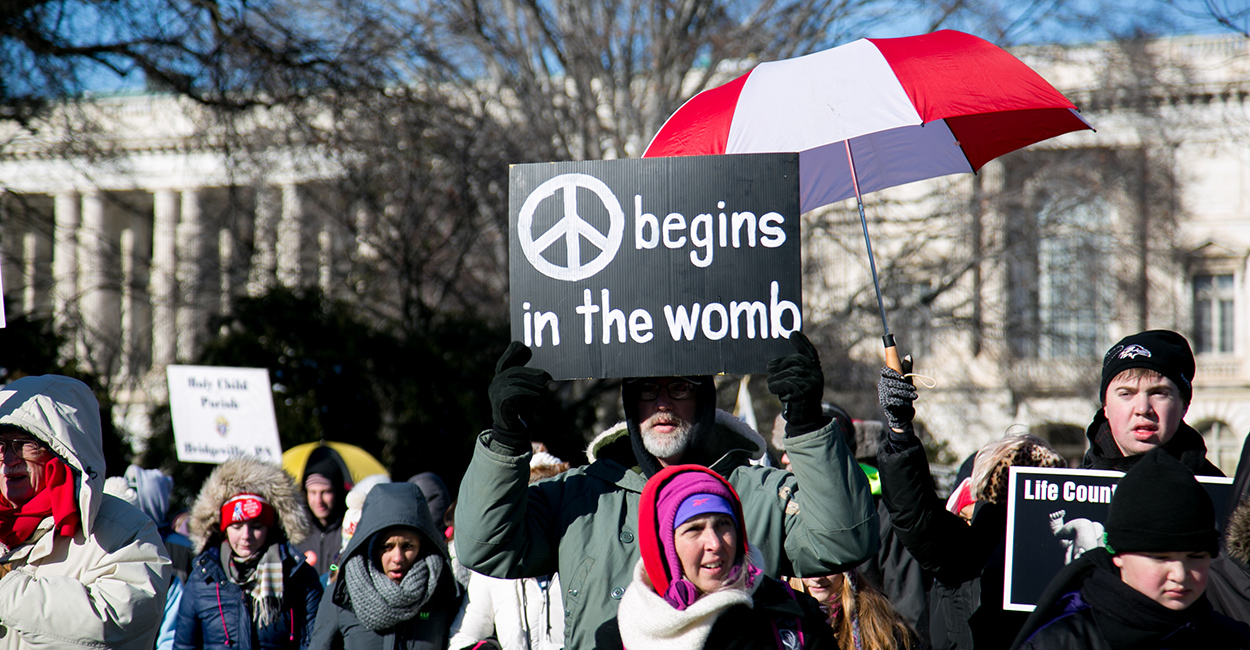"Pro-Life Activism Is Not a Mission of the Church - IT IS THE MISSION OF THE CHURCH" - By: Rolley Haggard| Breakpoint.org: April 5, 2013; http://www.breakpoint.org/features-columns/articles/entry/12/21897#at_pco=smlwn-1.0&at_tot=1&at_ab=per-3&at_pos=0&at_si=5477547179103841[AS I SEE IT: While I admit I do not fully understand all that this article's author writes, I do share his point that those who call themselves the evangelical church have largely been absent when it comes to the unborn. I personally find it hypocritical for churches to call themselves "pro-life" and yet when you ask them simply, "So what are you doing that gives evidence of your being pro-life?" you too often get a deer-in-the-headlights response - and this from the pastors themselves! In my view, much too many churches are simply "PLINO" - pro-life in name only. May God forgive many of His body for their sin of omission, for their in effect complicity in the on-going national holocaust that is abortion on demand in America. - Stan]
 There's an ongoing debate in Reformed and Evangelical circles regarding the mission of the church. That's good, because the Body of Christ needs to be clear on what the Head expects the hands and feet to be doing. But the way one frames the question can greatly affect the answer. So we need to make sure we're rightly framing the question.
Rightly Framing the Question
There's an ongoing debate in Reformed and Evangelical circles regarding the mission of the church. That's good, because the Body of Christ needs to be clear on what the Head expects the hands and feet to be doing. But the way one frames the question can greatly affect the answer. So we need to make sure we're rightly framing the question.
Rightly Framing the Question
More often than not,
the question “What is the mission of the church?” is framed so as to give either the exclusive mission, or the comprehensive mission, rather than
the primary mission. As important as the first two are, the third is, by definition, the most important.
Exclusive mission means those things that the church and
the church alone has responsibility for. There is no serious debate regarding the exclusive mission of the church.
All parties are pretty much agreed that the church's exclusive mission is to minister the Word of God, particularly in fulfillment of the Great Commission. If the church doesn't do that, no one else will.
Comprehensive mission means all things the church has responsibility for. The comprehensive mission of the Church is what the aforementioned debate centers on.
It involves determining what things are “official” church responsibilities and what things are not.
Primary mission means those things that are the church's most important responsibilities: the things she will be held most accountable for by Christ.
Unfortunately, neither side of the debate is giving much consideration to this, and, incredibly, it is falling through the cracks. Christ and His apostles laid it out so plainly it is difficult to understand how we are overlooking it, but we are.
The Church's Primary Mission
So what is the church's primary mission, her most important responsibility?
Jesus summed it up in what He called “the first and great commandment”: “Thou shalt love the Lord thy God with all thy heart, and with all thy soul, and with all thy mind” (Matthew 22:37).
He linked it inextricably with “the second [commandment]” which He said is “like unto [the first]: Thou shalt love thy neighbour as thyself” (v. 39). “On these two commandments,” He asserted, “hang all the law and the prophets” (v. 40).
The apostle Paul was even more concise: “All the law,” he wrote, “is fulfilled in one word . . . love. . . .” Biblical examples of the primacy of love could be listed almost endlessly. The church's primary responsibility, collectively and individually, is to love God and people.
God is pro-people and expects His body, the church, to be likewise. It is impossible to be an obedient Christian or an obedient church without loving people, for to love people for God's sake is to love God. It is hard to imagine anything being more clear. And yet.
We've Made Our Highest Priority Our Lowest
The church—the evangelical church in particular—is guilty of a spectacular sin of omission when it comes to loving people, especially the people Jesus referred to as “the least of these”: those we deem least important and easiest to neglect.
No people in America better fit the description “the least of these” than pre-born babies whose mothers choose, often under pressure and with subsequent regret, to abort them. Fifty-five million murdered now makes
us statistically nearly ten times worse than the Nazis. And by “us” I mean the church, because it is largely our collective silence that has enabled the butchery to continue virtually unopposed.
I'm an evangelical, and I've been asking myself for four decades,
how on earth does the church justify such egregious sins of omission as silence on abortion? The answers I've found center on the same thing: worldview.
We rationalize our culpable inaction on the basis of flawed worldview.
We think we have a biblical worldview, and in many essential ways we do (that's why I'm still an evangelical). But in many other, equally essential ways, we do not. I described two examples of flawed worldview impinging on the abortion issue in previous BreakPoint articles, here and here. This whole question about the mission of the church is a third.
Owing to a defective worldview on the Church's mission we have effectively made our highest priority our lowest.
The Rationale
There are at least two key aspects to the misguided rationale for our neglect of the church's primary mission, love.
First, sins of omission are easier to commit and justify than sins of commission. A study published in “Psychological Science” suggests that this is because
people know others will think worse of them if they do something bad, than if they merely let something bad happen.
Second, we mistakenly think we are loving people as we ought simply by sharing the gospel with them. The church today is characterized by words without works. True, the words we share are the words of God. But we forget that talk is cheap, and
we assume that because we speak God's words our sparse actions are excusable, that our merely saying “be warmed and filled” is somehow reckoned an acceptable substitute for actually filling the need.
But even the words of God are cheap if the life dispensing them does not show the love of God it preaches.
That is the whole point of James, chapter 2. We say “God is love,” yet demonstrate by our self-absorbed Christianity that this means exactly nothing except “God is willing to overlook the sins of those who speak well of Jesus, act religious, and win souls.”
This is not Christianity. And yet it is; it is what we have made of it.
The body of Christ has more resemblance to the insular Pharisee avoiding lepers than to the unselfconscious Good Samaritan showing—not speaking, but showing—compassion for the needy, regardless of cost.
There is no difference between one who says “be warmed and filled” and does nothing, and one who says “I'm pro-life” and does nothing. Faith without works is dead; love without action is not love.
Dietrich Bonhoeffer said, “The Church is the Church only when it exists for others.” The German Evangelical Church ignored him, and innocents within the borders of the Reich were slaughtered by the trainload, without opposition...
Pro-life activism is not a mission of the Church; it is the mission of the church because the mission of the church is loving people. If we are to be the Body of Christ we must care about “the least of these” as our Master did. That, or quit calling ourselves the church.
* * *
“Lord, when saw we Thee naked, an unloved fetus, and did not march, did not preach, did not vote or write letters or hold signs, did not agonize over Thee, did not advocate for Thee?”
* * *
Transfiguration
How like this little fetus, Holy God,
You writhed, enwombed in suffocating pain,
Until sharp instruments unpumped your blood
And left your form transfigured to a stain.
How like a loving mother's natal pine
Your prayer, encrypted as a primal groan,
Umbilical from heaven's soul to mine,
Proved you unwilling to unpair your own.
How like a wand commanding miracles
Your hand, atwitch in death, transmuted blood
Of murder into healing pharmicals,
Coagulating evil into good.
How like one crucified, my little boy
Now makes me, sick with wellness, retch in joy.
(Dedicated to the precious women who profoundly regret their abortions)
[bold, italics, and colored emphasis mine]
Rolley Haggard is a feature writer for Breakpoint. (Articles on the BreakPoint website are the responsibility of the authors and do not necessarily represent the opinions of BreakPoint. Outside links are for informational purposes and do not necessarily imply endorsement of their content.)














 Thomas Sowell is a senior fellow at the Hoover Institute and author of The Housing Boom and Bust.
Thomas Sowell is a senior fellow at the Hoover Institute and author of The Housing Boom and Bust.




